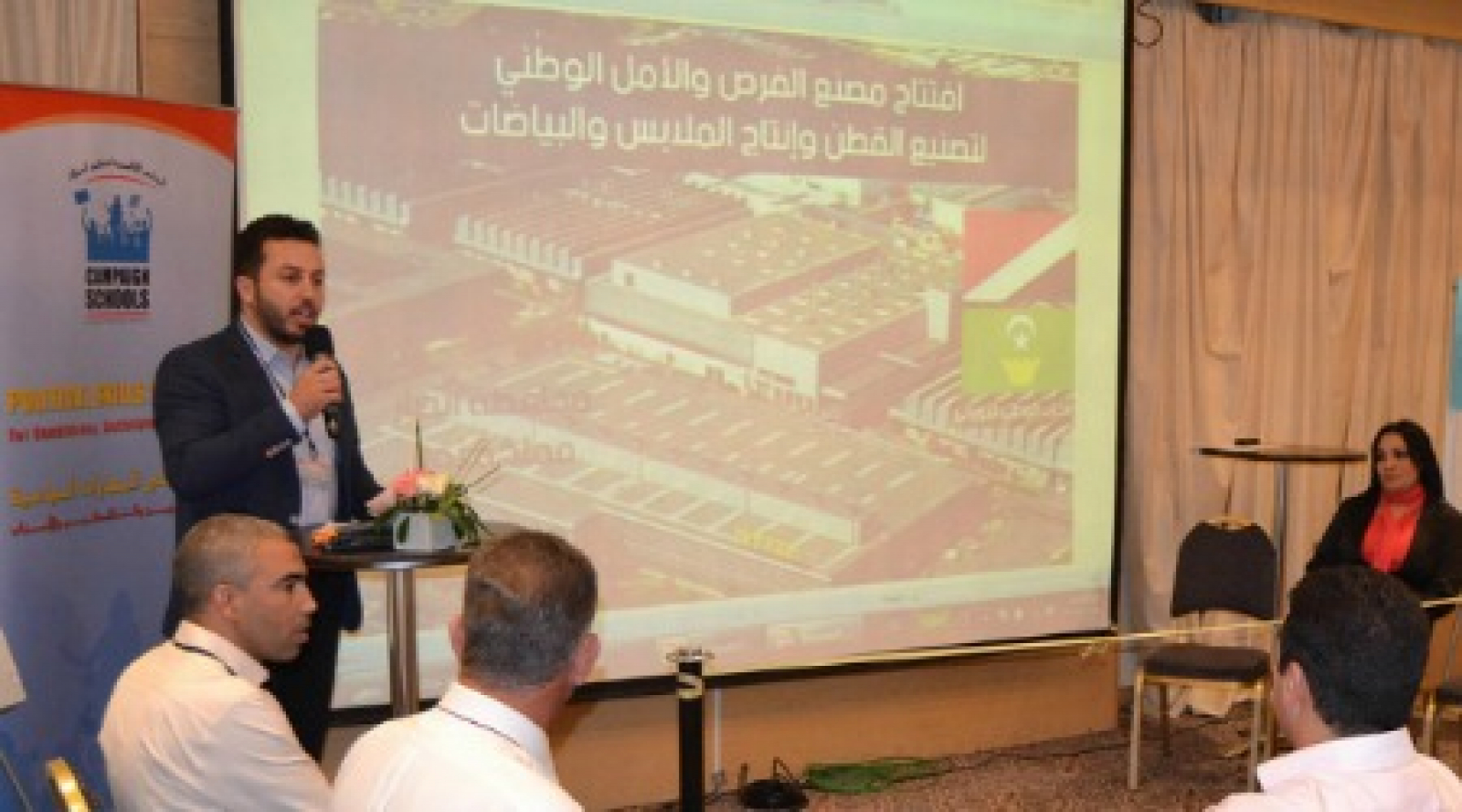
SHARE
Following the Arab Spring, new opportunities for political participation opened up in much of the Middle East and North Africa (MENA) region, particularly for women, youth and minorities who had historically been marginalized and excluded from power.
Still, aspiring political actors lacked experience, knowledge and exposure to democratic processes, particularly when it came to running for office. Recognizing this need, and with the support of the State Department's Middle East Partnership Initiative, NDI launched the Regional Campaign Schools program in the MENA region in the fall of 2012.
Through a growing online learning platform, workshops that bring together potential candidates and campaign managers from all over the region and a training-of-trainers (TOT) component that is building a cadre of Arabic-speaking trainers, the Campaign Schools program has exposed hundreds of thousands of people to the tools they will need to run effective campaigns.
Since 2012 NDI has held six Campaign Schools and four TOT workshops for a total of 328 individuals representing 91 political parties from 12 countries -- including Egypt, Jordan, Lebanon, Morocco, Tunisia and others.
The trainings are designed to deliver a genuinely competitive and intense campaign experience to participants, some of whom have never even seen an election. Based on an integrated curriculum, Campaign Schools include a competitive elections simulation combined with modules on key campaign components.Due to continued political turbulence in the region, only 130 graduates have experienced elections in their home countries since participating in the Campaign Schools program. Of that subset, however, 16 participants have run as candidates, 11 of whom were women. Four were elected, and a further 22 participants worked on campaign teams. Many reported to NDI that they used the skills learned in the Campaign Schools during their electoral work.
One such participant is Amel. A mother of two and a doctor, Amel joined one of the hundreds of new political parties created after protests in Tunisia helped bring down longtime president Zine El Abidine Ben Ali in 2011. That same year, the party Amel joined secured four seats in the National Constituent Assembly, the most of any post-revolution party.
As they prepared for elections in 2014, Amel and other members of her party’s elections committee followed the steps they learned through the Campaign Schools. Based on their research of the 2011 election results and canvassing data they had been collecting, the party set a feasible vote goal and campaign strategy. Amel and other Campaign Schools graduates who were members of the party’s elections committee also organized trainings for hundreds of party activists on the campaign message and plan to mobilize resources.
Party officials noticed Amel’s leadership during this strategizing. They asked her to serve as a candidate on one of the party’s lists in Tunis. While Amel did not win in her district, the party doubled their seats in parliament - going from four to eight seats. The party’s increased representation in parliament helped as they negotiated their position in the governing coalition after the elections. After the elections, Amel was hired by the Minister of Women’s Affairs.
An essential goal of the Campaign Schools program is to reach women and youth, like Amel, who are eager to effect change in their countries but feel that they lack some of the tools to do so. Despite the dismal rate of women’s participation in politics in the MENA region, 48 percent of Campaign School participants have been women and a full 66 percent have been under the age of 40.
Following the completion of Campaign Schools training, graduates return to their home countries to not only put their new skills to practice in running campaigns, but also to train fellow activists and party members on the Campaign Schools content. In this sense, many graduates have become individual program multipliers, having trained some 15,400 other people on topics like leadership, voter targeting and contact, message development and communications.
To facilitate the work of Amel and other graduates, NDI has made materials like its Campaign Skills Handbook public on several Arabic language websites, including NDIMENA.org. The Campaign Schools Handbook is a step-by-step manual for candidates, political party activists and campaign staff. The new Campaign Skills Handbook guides users through a comprehensive process for planning and implementing electoral campaigns. Furthermore, NDI field offices in the region regularly bring graduates in to facilitate trainings based on the Campaign Schools' curriculum.
This year, in an effort to create an online learning environment across the region, NDI released eight videos on NDIMENA.org that complement modules from the Campaign Skills Handbook. Within four months, the Campaign Schools’ digital resources received over 600,000 visits and materials were downloaded more than 11,300 times. About 53 percent of those visits were from repeat users , indicating that political activists are frequently coming back to the NDI MENA website to engage further with the content.
Over the next year, NDI plans to hold two additional Campaign Schools and one TOT workshop. The Institute will also release seven more videos to bolster its e-learning component, aiming to reach over a million individuals across the MENA region. Thanks to the spread of technology and to trainers like Amel, the number of Campaign School participants will only continue to grow.
Read more:
- Campaign School Graduates Help Lebanese Youth Consider Outreach Strategies»
- Tunisia Campaign School Helps Aspiring Politicians across the Middle East and North Africa»
- Read the Campaign Skills Handbook in English and Arabic»
Published on December 22, 2015



